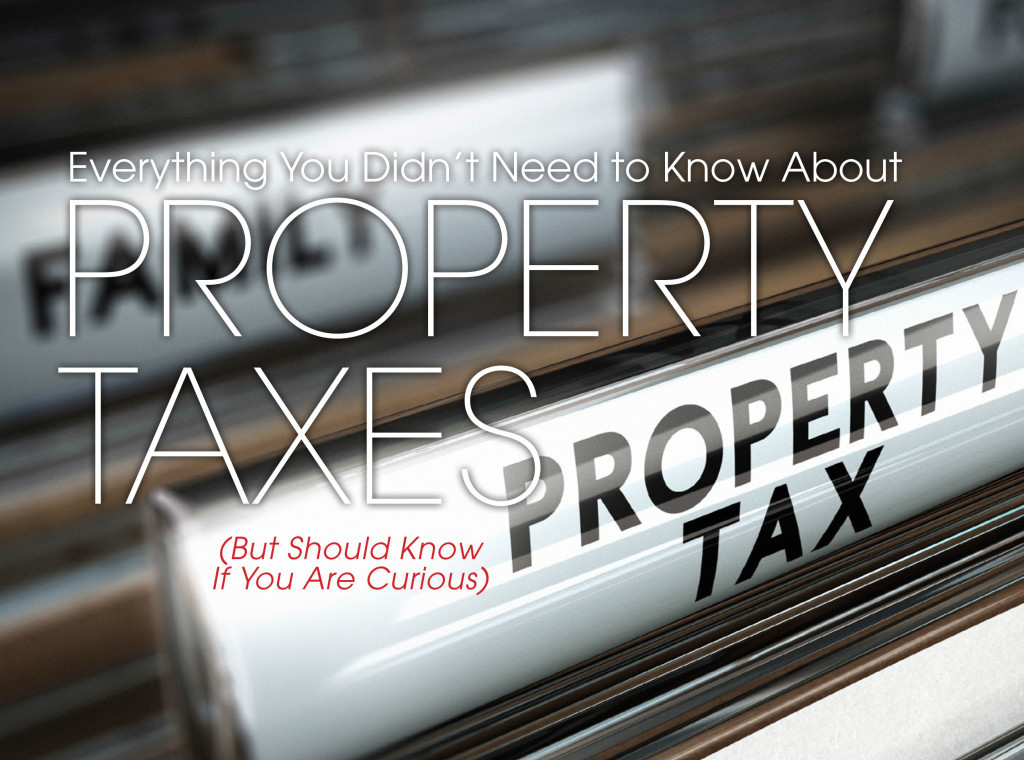Everything You Didn’t Know About Property Taxes
- Date: 15 December 2018
- Author: Steve Corn
- Category: Taxes
Most of the calls I receive in the office—from people who have questions about one thing or another concerning Real Estate—have to deal with Real Property Taxes. As such, I thought I’d get a jump on the subject in this issue of The Vault . But first, let me start by explaining some of the basic property tax facts; then I will get into some of the more complex questions.
The general property tax bill creates the most confusion. Facts related to this are, typically, the Tax Assessor will mail the tax bill to property owners every year during the last week of September or first of October. For purposes of this article, I am going to discuss the Tax bill we received this past October. That tax bill is for property taxes for the period of July 1, 2014 to July 1, 2015 broken down into 2 installments covering the periods of 7/1/14 to 1/1/2015 (1st installment) and 1/1/2015 to 7/1/2015

(2nd installment). The first installment is due November 10th and becomes delinquent if not paid by December 10th. The 2nd installment is due February 10th and becomes delinquent if not paid by April 10th. When an installment becomes delinquent, a penalty of 10% of the amount due will be assessed/added to the amount owed. This assessment increases on July 1st and on the 1st of every month thereafter until paid.
QUESTION: I already paid my Taxes; will I get a refund from the Assessor after the close of escrow?
ANSWER: Property taxes are prorated through escrow. Meaning, if you paid your first installment and your escrow closes on November 22nd, you will receive a refund in the form of a tax proration from the Buyer through escrow for the period of the date of close of escrow (November 22nd ) to January 1st (the date taxes are paid to).
QUESTION: I plan to close escrow on September 24th, and I have not received my tax bill for the 2014/2015 Tax year—what happens now?
ANSWER: We will prorate property taxes at the close of escrow by charging the Seller their share of the property taxes (based on the amount of last year’s tax bill) from July 1st to September 24th. This money will be given to the Buyer at the close of escrow who will then be responsible for paying the tax bill when it becomes due in November. This means the Seller will have already paid his share of the tax bill before the bill gets mailed and the Buyer will pay the entire six month bill (July 1 to January 1) once the bill becomes available. Often the bill will be mailed to the Seller at his forwarding address. The Buyer is encouraged to obtain a copy of the tax bill from the Tax Assessors website.
QUESTION: My taxes are impounded with my new loan, and I received a Supplemental Tax bill; will my lender pay this bill through my impound account?
ANSWER: No, your lender will not pay the supplemental tax bill. Do not ignore it. You must pay by the due dates to avoid penalties.
There is no way to cover all of the variables here when it comes to property taxes, but if I can leave you with one more bit of advice, if you are planning to sell your home near the due date of a property tax installment, and you pay your own property taxes (not impounded with your mortgage), I strongly suggest you consult with your Escrow Officer for special handling of your tax payment so as to avoid funds being held unnecessarily in escrow after the close of escrow.
I hope you are enjoying this edition of The Vault. As always, if you have any questions concerning this or any real estate related topic, please contact me by phone or e-mail at 661-259-3450 or SteveCorn@NewhallEscrow.com .
Related Articles

Everything You Didn’t Need To Know About Property Taxes




Everything You Didn’t Need To Know About Property Taxes




